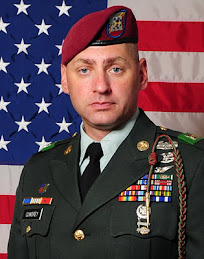FOR IMMEDIATE RELEASE
Friday, September 28, 2012
Glen Caplin (Gillibrand)
917-865-7556
Max Young (Schumer)
202-380-5990
Brice Peyre (Maloney)
646-831-1649
Kevin Fogarty (King)
202-225-3062
Ilan Kayatsky (Nadler)
212-367-7350
GILLIBRAND, SCHUMER, MALONEY, KING, NADLER PRESS
FEDS
TO PROTECT ZADROGA FUNDS FROM ANY SEQUESTER
CUTS
New York Lawmakers Fight to Protect 9/11 Health &
Compensation Programs from Looming Budget Ax
Lawmakers Advocate for the Heroes Who Answered the Call
of Duty on 9/11 to be Treated With Same Dignity As Military Veterans -- Slashing
9/11 Treatment and Compensation Funds Violates Congressional Rule and Intent,
and Contradicts Precedent to Aid Injured and Sick Victims
New York, NY – U.S. Senators Kirsten Gillibrand (D-NY) and Charles
Schumer (D-NY), joined by Representatives Carolyn Maloney (D-NY), Peter King
(R-NY), and Jerrold Nadler (D-NY) today urged the Office of Management and
Budget (OMB) to preserve funding for the critical 9/11 health programs that were
passed into law under the James Zadroga 9/11 Health and Compensation Act should
any sequestration budget cuts go into effect next year. A preliminary report by
OMB shows that $24 million is slated to be slashed from the Victim Compensation
Fund, and an additional $14 million would be cut from the World Trade Center
Health Fund in 2013, as part of the deal to cut over $1 trillion in defense and domestic programs, known as
sequestration.
The lawmakers wrote in a letter
to OMB Acting Director Zients, “[W]e all agree that applying sequestration to
these two programs [established by the James Zadroga 9-11 Health and
Compensation Act] does not make sense, is not consistent with Congressional
intent, does not follow precedent regarding trust funds provided for victims,
and we would urge OMB to reconsider this initial finding if it is required to
proceed with a sequester… We are concerned that OMB has not fully investigated
the facts under which these programs operate.”
“Nothing exemplifies this
unbalanced and draconian approach to deficit reduction more than asking our
heroes who have already
sacrificed so much to sacrifice yet again,” said Senator Gillibrand. “Our
9/11 heroes who answered the call of duty should be treated with the same
dignity as our veterans. Just as we have come together as Democrats and
Republicans to fight for our heroes, I urge our colleagues to do the same and
work towards a balanced approach that keeps struggling families from sacrificing
the most.”
“This is one of the most
poignant examples of why we must work to avert the sequester,” said Senator
Schumer. “We can entirely avoid this problem if both parties agree to
support a balanced deficit reduction plan that includes revenues as well as
sensible savings. But in the event that they don't, we must work to make sure
there that the burden does not fall on the national heroes who are finally
receiving the help they deserve through the Zadroga Act. Veterans have been
exempted from sequestration and the heroes who have rushed to towers after 9/11
should be treated the same. They risked their lives in a time of war and
suffered for it.”
“Sequestering 9/11 health
funding would be a monumental misapplication of the law and a gross affront to
those who continue to suffer the health consequences of the terrorist attacks
and their aftermath,” said Congresswoman Maloney. “The World Trade Center
Health Program and the Victim Compensation Fund are both paid for with a
dedicated funding stream and do not contribute one cent to our nation’s budget
deficit. Needlessly cutting health funding for responders, workers, and
residents who are sick or dying as a result of their exposure to Ground Zero
toxins would literally be adding insult to injury.”
“We have come too far and our
9/11 heroes have endured too much for this funding to be subjected to a
bureaucratic reduction,” said Congressman King. “It would be a cruel hoax
to finally allow these individuals to start their necessary treatment, only to
find out they will not be able to continue it through no fault of their
own.”
“I am quite concerned that,
among the vast devastation that sequestration would bring, it will also include
cuts to Zadroga Act funding,” said Congressman Nadler. “We have all
worked extremely hard, with the help and support of 9/11 first responders and
survivors, to obtain health care and compensation for those who need it, and we
must not now, all of a sudden, ration assistance for the sick. We are urging the
Office of Management and Budget to reconsider its determination on Zadroga’s
exemption from the sequester. The health and well-being – not to mention peace
of mind – of thousands of responders and survivors of 9/11 depend on
it.”
In addition to noting that cuts
to these programs would be devastating for the families of 9/11 victims and
first responders, the five members of Congress also listed three key reasons why
the 9/11 programs should be exempt from automatic cuts:
·
The preliminary budget
fails to take into account New York City’s agreement to voluntarily pay 10%
share for the 9/11 program. Under
federal rule, “activities financed by voluntary payments to the government” are
exempt from sequester. Lawmakers pointed out that according to this statute, the
City’s voluntary contribution should be protected from the sequester
process.
·
The 9/11 health programs
should be added onto the list of federal health and compensation programs that
are already immune from cuts. There are
currently 150 exemptions, including at least six programs established for
injuries and illnesses, signed into law by February 2010—nearly a year before
the 9/11 health bill was passed. Had the 9/11 health bill existed then, the 9/11
programs would have been among the items protected from
sequestration.
·
The proposed budget cuts
are an affront to the 9/11 health law that was already formulated to cut the
deficit. The 9/11 law was already
devised to be fully paid for and to cut the deficit. According to the
Congressional Budget Office's estimate, the law slashes $433 million from the
deficit.
The budget already spares
veterans from most of the automatic budget cuts. OMB released a letter in April
assuring that programs under the Veterans Affairs agency would be exempt from
sequestration.
Full text of the lawmakers’
letter is below:
Dear Acting Director Zients,
We are writing to convey our
deep concern about the Office of Management and Budget’s (OMB) initial
determination that the programs established by the James Zadroga 9/11 Health and
Compensation Act are subject to sequestration under the Sequestration
Transparency Act of 2012. As Members of Congress, some of whom voted for the
“Budget Control Act of 2011” and some of whom voted against, we all agree that
applying sequestration to these two programs does not make sense, is not
consistent with Congressional intent, does not follow precedent regarding trust
funds provided for victims, and we would urge OMB to reconsider this initial
finding if it is required to proceed with a sequester.
The September 14, 2012 “OMB
Report Pursuant to the Sequestration Transparency Act of 2012 (P. L. 112–155)”
identifies the World Trade Center (WTC) Health Program, administered by the
Department of Health and Human Services and the September 11th Victim Compensation Fund (VCF),
administered by the Department of Justice as programs subject to sequestration.
Both of these programs are listed as being subject to a 7.6 sequester percentage
with the WTC Health Program’s $190 million budget authority for FY 2013 slated
for a $14 million reduction and the VCF’s $322 million budget authority reduced
by $24 million. Not only would these cuts be devastating for the victims that
need assistance, we are concerned that OMB has not fully investigated the facts
under which these programs operate.
For example, the 7.6% sequester
estimate was applied to the total $190 million health program instead of
subtracting the 10% payment volunteered by the City of New York prior to
calculating the cut. Pursuant to the PAYGO Statue, Section 11(g) ‘‘Activities
financed by voluntary payments to the Government for goods or services to be
provided for such payments” are exempt from sequester. The City of New York has
voluntarily agreed, through a memorandum of understanding (MOU), to pay a 10%
share for the program. Therefore, including their portion of the funding
violates the sequester process.
In addition, as OMB is aware,
the PAYGO Statute which was signed into law in February 2010 includes 150
exemptions. Among the programs exempted are similar health and compensation
programs that have been established for other injuries and illnesses such as:
the Payment to Radiation Exposure Compensation Trust Fund, Radiation Exposure
Compensation Trust Fund, Energy Employees Occupational Illness Compensation
Fund, Vaccine Injury Compensation, Vaccine Injury Compensation Program Trust
Fund, and the Black Lung Disability Trust Fund to name a few. But the 9/11
health and compensation funds did not exist at the time the PAYGO Statute was
enacted. The James Zadroga 9/11 Health and Compensation Act, which established
these funds, was not passed by the Congress until December 2010 and was signed
into law by the President in January of 2011. Clearly had the 9/11 Heath and
Compensation programs existed in February 2010, when the PAYGO law was passed,
they would have been included on the list of specific exemptions and therefore
we request that both the health and compensation programs are excluded from
sequestration.
Moreover, the James Zadroga
9/11 Health and Compensation Act, when enacted, was not only fully PAYGO
compliant with a dedicated stream of revenue that fully pays for the program,
but in fact provided an additional $433 million in deficit reduction, revenue
above what the Act spent. Given that it was fully PAYGO compliant and in fact in
the end will lead to over $400 million in deficit reduction we do not believe
that subjecting the two programs to sequester is proper or consistent with the
precedent set by similar health and compensation programs provided to injured
workers.
In conclusion, we know that the
task before OMB is difficult and it is our sincere hope that Congress will find
an alternative to sequestration. However, as your report states on page one,
“The estimates and classifications in the report are preliminary. If the
sequestration were to occur, the actual results would differ based on changes in
law and ongoing legal, budgetary, and technical analysis.” We therefore write to
you in the hope of pointing out that we do not believe that Congress
intended to have these two programs fall under sequestration.
###





















